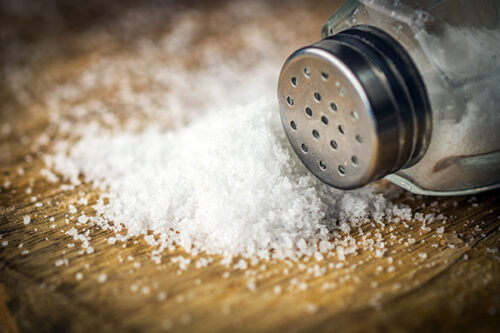Hiatal Hernia, Hiatus
Cause: The esophagus passes along the mid-line of the chest to enter the stomach which lies in the abdomen. En route, the hollow esophageal tube reaches the stomach through a hole in the muscular “breathing” diaphragm that separates the chest from the abdominal cavity.
Straining to pass the hard and pebbly feces that the well-fed American produces, causes an upward pressure in the abdominal cavity that forces his stomach and lower esophagus up into the chest cavity with each and every desperate push. In the process, the natural tight opening in the diaphragm muscle is widened, inviting the hernia–the protrusion of the stomach into the chest cavity. When the stomach is up there in the chest, it is subjected to negative pressures as the chest cavity expands in the act of breathing. This negative pressure draws stomach acid up into the esophagus, causing erosion of its lining and pain. Half the people over age 50 living in America have permanently stretched their diaphragm muscle to acquire a hiatus hernia – another identifying sign of an unhealthy glutton.
Current Treatment: As with other intestinal disorders, primary attention must be focused on the cause – your foods and beverages. After dietary change, relief of the pain is evident within only a few days – sometimes within hours. The hernia does not go away, but the irritation and resulting discomfort almost always disappear after a victim makes more careful choices of starches, fruits, vegetables, and condiments. (See Ulcers for list of irritating fruits juices, vegetables, and condiments.)
Recommendations
+-Eat a starch-based diet and take care to avoid irritating things such as fatty foods, alcohol, and decaffeinated as well as caffeinated coffee, hot peppers, Mexican salsa sauces, raw onions, cucumbers, green peppers, radishes, and fruit juices.
Antacids, and in difficult cases, more powerful acid reducing drugs, such as Tagamet (cimetidine) and Zantac (ranitidine), may be helpful. Raise the head of your bed on 4-6 inch blocks in order to keep stomach acid out of the esophagus while you’re sleeping.
References
+-Burkitt, D. Prevalence of diverticular disease, hiatus hernia, and pelvic phleboliths in Black and White Americans. Lancet 2:880, 1985
Burkitt, D. Hiatus hernia: is it preventable? Am J Clin Nutr 34:428, 1981
Capron, J. Evidence for an association between cholelithiasis and hiatus hernia. Lancet 2:329, 1978
Recommended Articles

Salt: The Scapegoat for the Western Diet

What Is the Life Expectancy with Heart Disease and Diabetes?






